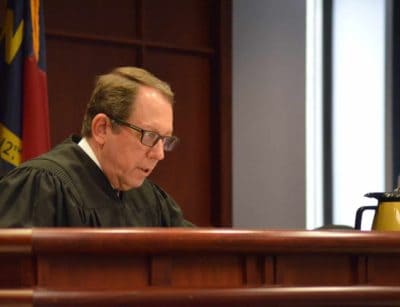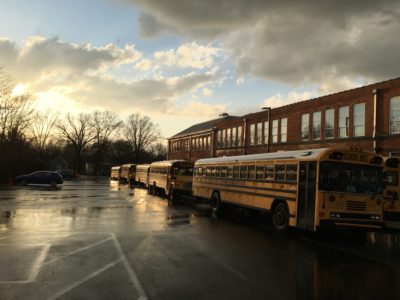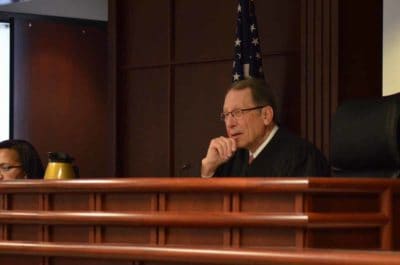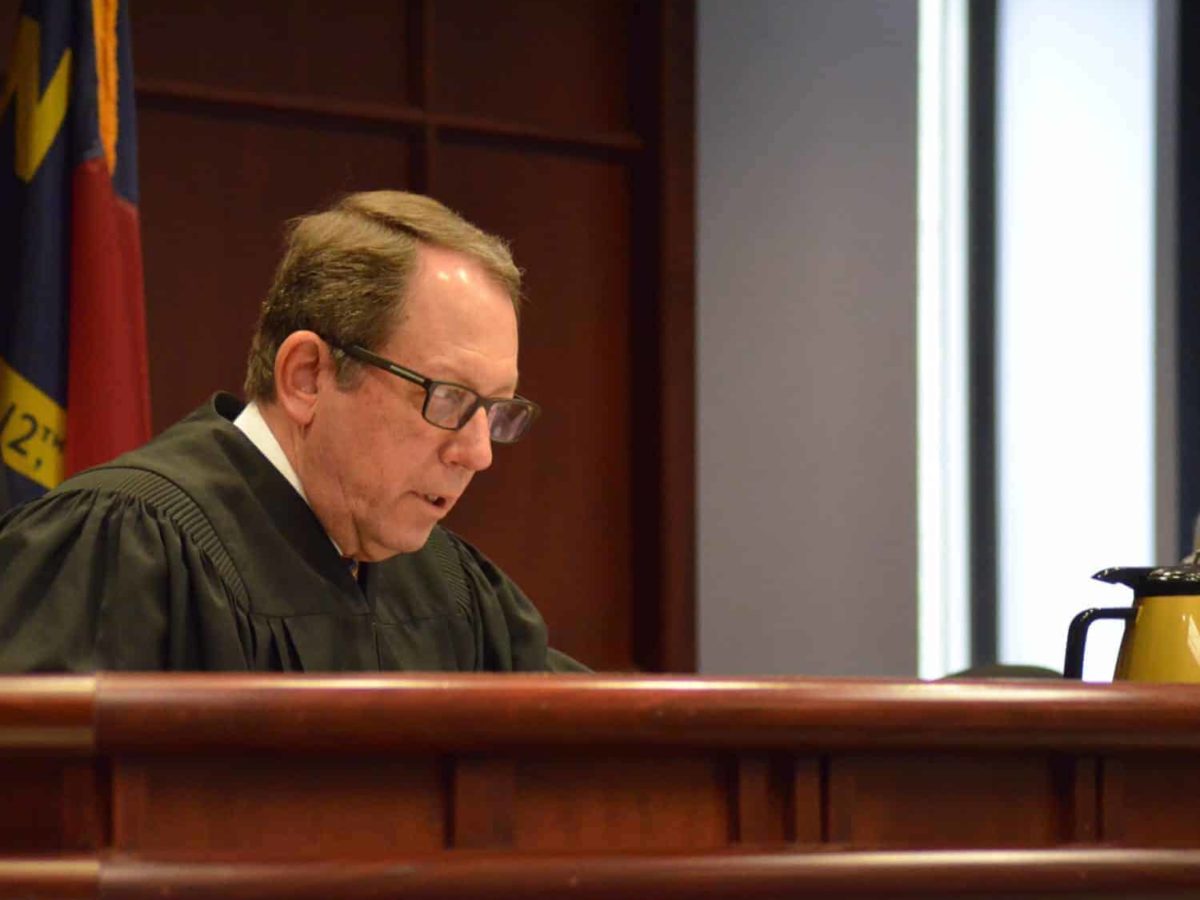
|
|
Superior Court Judge David Lee said today that the proposed budgets of the state House and Senate are “woefully short” of what is needed to provide a sound basic education for all North Carolina students.
The Supreme Court of North Carolina, in its landmark Leandro v. State decision over two decades ago, affirmed the fundamental right of every child to have access to a sound basic education. The courts also ruled that North Carolina was not meeting this constitutional requirement.
Since then, courts and parties involved have been trying to make this right — most recently with a comprehensive plan signed and ordered by Lee in June.
Wednesday’s hearing was the first progress report following the signing of that plan. It is also the first hearing since both the Republican-controlled House and Senate released proposed budgets, which could have funded the second and third year of that comprehensive plan.
In a progress report put out by the state, attorneys laid out the amount of money spent on Leandro items by the two proposed budgets. The Senate proposal includes funding that would cover almost 28% of what is needed to implement the comprehensive plan in 2021-22, while the House proposal would cover about 20%.
Meanwhile, the progress report states that the proposed budget submitted to the legislature by Democratic Gov. Roy Cooper would fully cover the costs of implementing the second and third year of the comprehensive plan. The report also goes into the money available to the state for this budget process, noting that the state has ample funding to meet the comprehensive plan on its own, not to mention federal American Rescue Plan funds that are available to North Carolina to address the impacts of COVID-19.
The Leandro comprehensive plan calls for $690.7 million in 2021-22 and $1.06 billion in 2022-23.
“It appears to me that the funding for the plan is really the major roadblock to moving forward,” Lee said, adding later that he “was very disheartened” when he saw the proposed budgets submitted by both the Senate and House.
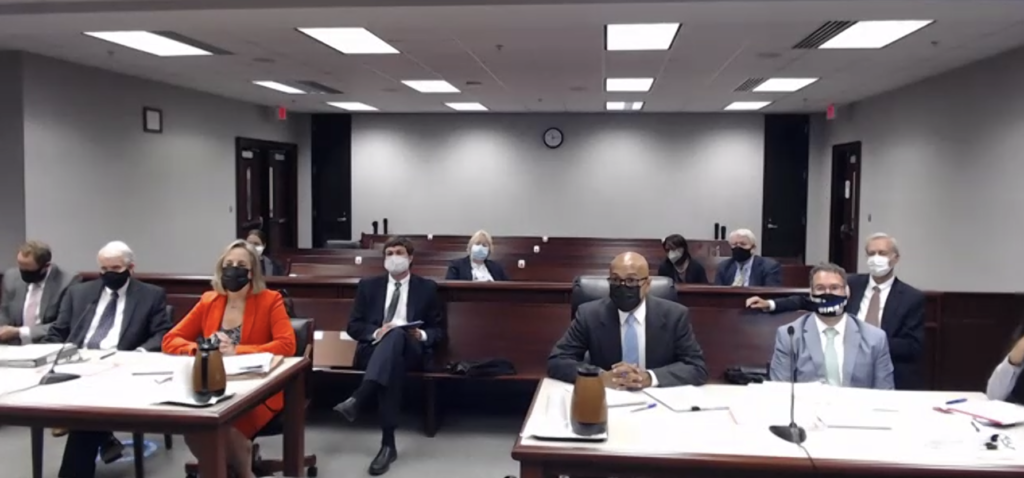
A final budget for the state has not yet been voted on.
Lee asked during the hearing if there were any roadblocks other than funding that stand in the way of implementing the comprehensive plan, but none were given.
In the plaintiff’s response to the progress reports submitted by the state and the State Board of Education, the plaintiff’s attorneys wrote the following:
“The State’s continuing violation of that duty is equally long-established and amplified every day. The State’s plan to remedy that violation was approved by this Court, and there are more than enough resources available to fully implement it. North Carolina’s children have waited long enough. As held by the Supreme Court, ‘the children of North Carolina are our state’s most valuable renewable resource.’ Leandro II, 358 N.C. at 616, 599 S.E.2d at 377. ‘If inordinate numbers of them are wrongfully being denied their constitutional right to the opportunity for a sound basic education, our state courts cannot risk further and continued damage…’ Id. (emphasis added). Further and continued damage is happening now, especially to at-risk children from impoverished backgrounds, and that cannot continue.”
Lee said that he wants to wait and see if the legislature and governor can find a way to address the comprehensive plan in the final budget agreement before he enters any more orders.
“I don’t want to give up on our public officials just yet,” he said. “I’m very close to it, I’ll tell you that.”
Melanie Dubis, a lawyer for the plaintiffs in the case, said that the state’s students have already waited years for the constitutional obligation of the state to be met.
“This court has given the state every opportunity to come forward with a remedy, to implement a remedy, and to meet its constitutional obligations,” she said.
Dubis asked Lee to hold another hearing at the end of the month to receive an update on where the state is with implementing the comprehensive plan. If the state is still falling short, she said the next discussion should be about a motion for the state to explain why it is in violation of court orders and the state constitution.
In response, Lee asked “Where is that gonna get us?” He went on to say that he is not eager to hold anyone in contempt, however, and that he would prefer “another route.”
But, he said, without a budget agreement that meets the comprehensive plan, it seems that there is a “continuing and willful and conscious refusal and neglect to comply with the constitution of this state.”
He also said that, in looking at the amount of money available to the state, the failure to act by the General Assembly is even more surprising.
“There is not only a willful refusal to act here, but the means for compliance are extraordinary in this case,” he said.
While the lawmakers of the General Assembly are ostensibly part of “the state,” they are not parties in the case. Republican leaders have not shown any interest in implementing the full comprehensive plan developed by the participating parties.
Pat Ryan, a spokesperson for Senate President Pro Tem Phil Berger, R-Rockingham, said in an emailed statement that figuring out how the state should spend money isn’t the job of a judge.
“I don’t know how much clearer we can be. If Judge Lee wants to help decide how to spend state dollars — a role that has been the exclusive domain of the legislative branch since the state’s founding — then Judge Lee should run for a seat in the House or Senate,” Ryan wrote.
Ryan also referenced statements made by Judge Howard Manning, who oversaw the Leandro case for much of its history. In the statements from August 2020 — long after Manning left the case — Manning says that more money won’t solve the issues with education in North Carolina. He doubled down on his comments in an October 2020 News & Observer piece, blaming the state’s education woes on a “failure of classroom instruction” when it comes to reading.
Lee set an Oct. 18 hearing date, where he will hear any progress on the comprehensive plan and proposals on what the court should do to ensure the plan gets implemented if the General Assembly refuses to fully fund it. He also said that he does intend to take the steps necessary to make sure the state’s failure to meet its constitutional obligation is addressed. He said this is state lawmakers’ last chance to act.
Here is the state’s progress report to the court.
Here is the State Board of Education’s report to the court.
Here is the plaintiff’s response in the court.
Here is a statement from Every Child NC.




